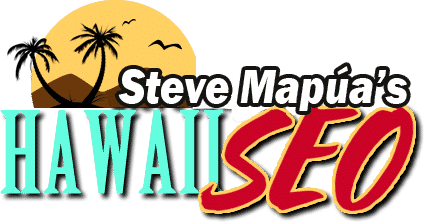Hawaii SEO – The Common Keyword Types (Part 2)
In Hawaii SEO – The Common Keyword Types (Part 1), I already introduced to you a few of the most commonly used keywords. Today, I will further elaborate the other keywords you can incorporate to your content.
The Phase-Based Keywords
- The world of search is a journey. That’s why people start an online search in the first because they are in the quest for something.
- You might want to set up keywords that will help your potential customers in their journey. In this section, there are different categories.
- For a brand-centric site, you might want to consider the awareness, consideration, conversion, retention stage. However, for a customer-centric website, there’s the unaware, problem aware, solution aware, brand aware stage. Whatever your website is, the main point here is to assist them in their navigation, inform them of potential solutions, and convince them to transact with your website.
Here are some examples:
- Let’s focus on the customer based model for this scenario.
- Unaware: uses computer
- Problem aware: encounters a malware and had problems with the computer
- Solution aware: discovers there are anti-malware programs to prevent this problem
- Brand aware: stumbles upon Malwarebytes
Global and Local
First, let us discuss what a local keyword is. It could mean any of the following:
- The searcher is looking for something near his current location. This could be things such as “car rental near me” or “hotel accommodation in Hawaii”. Perhaps, it could also be a hungry customer asking for something like “What time does In-N-Out Burger close?”.
- The searcher is in a specific location and would like to learn about something. For example, when someone searches for “biggest steak in Texas” could be a local search because there’s a possibility that the searcher looking for The Big Texan Steak Ranch, which is in Amarillo, TX. Why? Because Texas is known for its barbeques, burgers, and steaks.
Here are some examples:
- Local: Whataburger locations in Abilene, TX
- Global: Is Whataburger the best fast food burger?
The Audience Type Keywords
- There are also keywords that cater to a specific audience. The ‘who is searching’ can also be detrimental to the search. Just look at the Google search results and ask whether who the target audience is. If Google gives you what you WANT, then you are part of the target audience.
Here are some examples:
- The MERS-CoV: Symptoms and Causes is an article meant to inform possible patients and the general public.
- Meanwhile, an article about Clinical characteristics of 312 hospitalized older patients with COVID-19 may be suitable for doctors and medical professionals.
Evergreen and Topical
- Evergreen keywords are timeless. Whether it is 5 years from now or 10 years ago, the topic is still relevant. However, topical keywords are terms that are seasonal.
- For instance, the 2020 NBA schedule or Christmas gift ideas may only refer to this year. The following year, there will be another set of schedule or another set of gift ideas.
- Mostly, people prefer to produce more evergreen content since it is a long-term investment. There’s still value for that content even after many years. On the other hand, topical content may have a short duration, but it gives you immediate gratification – the views and interactions are immediately received.
Here are some examples:
- Evergreen: most common grammar mistakes
- Topical: CBS fall 2020 TV schedule
Read more of the keyword-related articles on: What Are SEO Keywords, Where to Put SEO Keywords, and More Keyword Research Tools That Aren’t From Google. Since you know what keyword types are, learn How to Conduct Your Keyword Research next.









